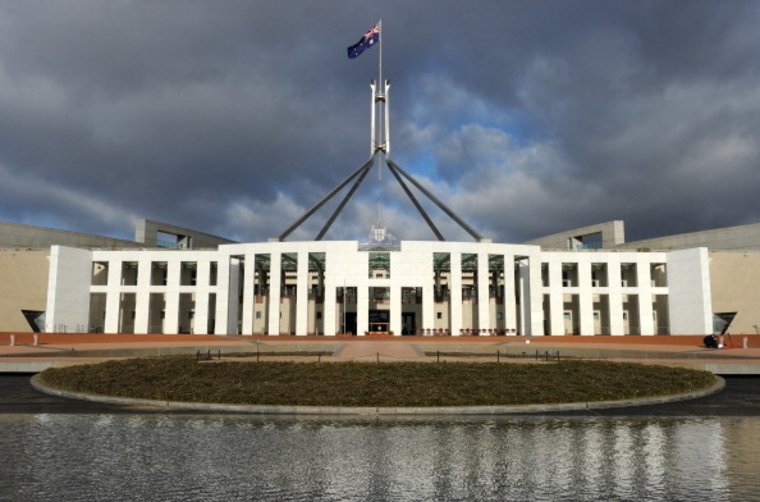The principle that all Australians should not be divided on the basis of their race or skin colour is a cornerstone of our freedoms and the rule of law. This clear principle — that race has no place in the Australian Constitution — is being undermined by a bipartisan campaign to divide Australians in our nation's founding document by establishing a special body to represent indigenous Australia to be a "voice" to parliament on issues relevant to indigenous Australians.
 Yesterday, Indigenous Australians Minister Ken Wyatt revealed in an address to the National Press Club that the federal government intended to "bring forward a consensus option" for an indigenous "voice" to be presented at a referendum during the present term of parliament.
Yesterday, Indigenous Australians Minister Ken Wyatt revealed in an address to the National Press Club that the federal government intended to "bring forward a consensus option" for an indigenous "voice" to be presented at a referendum during the present term of parliament.
This appears to be a different position than the Coalition offered voters before May's federal election. The Prime Minister did not tell the so-called quiet Australians who elected the Coalition that he supported political and legal rights being accorded to Australians on the basis of their race.
While remaining committed to some form of constitutional recognition, the view of the Coalition was that which was expressed by former prime minister Malcolm Turnbull, who rejected the proposal for a voice in October 2017, saying "the government does not believe such an addition to our national representative institutions is either desirable or capable of winning in a referendum".
The flaws of the proposals are the same as they were then. In practice, the voice could never be confined to issues solely affecting indigenous Australians. This is because all major policy issues, such as health, education and infrastructure, apply to all Australians regardless of their race. The voice also presents an unprecedented threat to our representative institutions. It is inevitable that a representative body for indigenous Australians would effectively practise a veto power over any policy passed by any Australian parliament. Rather than a formal veto power, the power of the body would be to shame parliaments into agreeing with its advice. The alternative is to oppose the indigenous voice. Conversely, an official, constitutionally enshrined voice that represents one view might crowd out other views in the indigenous community.
The minister is seeking inspiration from the 1967 referendum, which he notes "was the result of tireless advocacy and an extraordinary momentum for change". It is important to consider what the nature of that change was.
In 1967 almost 92 per cent of Australians agreed to "alter the Constitution so as to omit certain words relating to the People of the Aboriginal Race in any State and so that Aboriginals are to be counted in reckoning the Population". In other words, Australians then overwhelmingly voted to remove references to race in the Constitution. Now both parties are asking Australians to put race back into the Constitution. This is not progress in indigenous affairs, it is a significant backwards step.
Wyatt criticised paternalist policies developed in Canberra. He said "even the most well-intentioned modern policies and programs have still tended to take a top-down command-and-control approach". But the solution to the problem he has correctly identified is fundamentally flawed.
Localism should be embraced, which would see communities — indigenous and non-indigenous — given the power to make their own decisions that are appropriate for them. This is a fundamental part of addressing the challenges in indigenous communities, but decentralisation does not require the abolition of the universality of the Australian Constitution.
Unfortunately, a significant problem in indigenous affairs today is the assumption that the types of policies that promote success and human flourishing are culturally contingent. The fundamental building blocks of a successful life — the dignity of work, safe neighbourhoods, stable families and economic opportunity — are the same regardless of one's racial background. Constitutional change is not required to promote these building blocks. Instead, Australian governments should focus on practical outcomes for indigenous Australians, such as ensuring more children attend school and more economic opportunity reaches remote areas.
Any proposal to establish a special voice for some people and not others is illiberal and a violation of all principles of racial equality. The parliament, which is open to participation from all Australians, remains the best body to address these needs.
Even just challenging these ideas and asking Australians to divide themselves by race might divide Australia along those lines forever. If the referendum for an indigenous voice wins, Australia's system of representative government will be up-ended. If the referendum fails, it will be a win for an industry that thrives on stoking resentment between segments of the Australian population.
In an age of identity politics, it is a test of the federal government to promote a vision of unity, not further division. If it were to consider establishing a voice to parliament, the Morrison government might fail this important test.
No comments:
Post a Comment